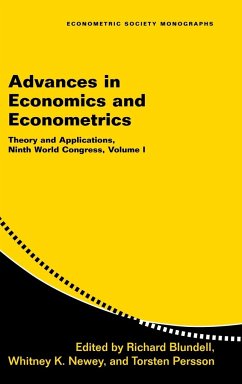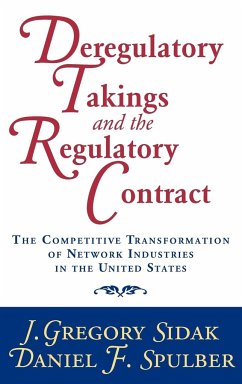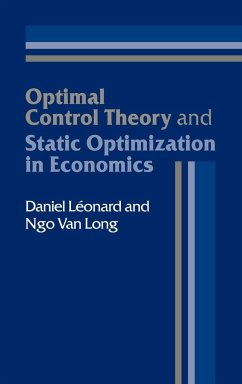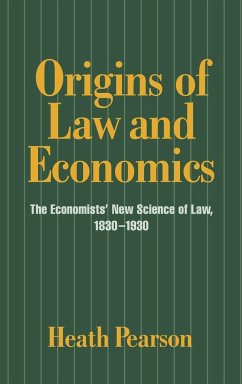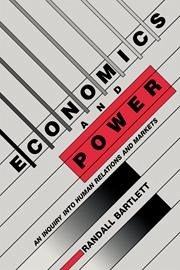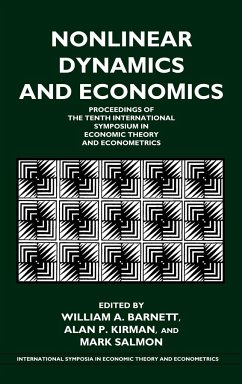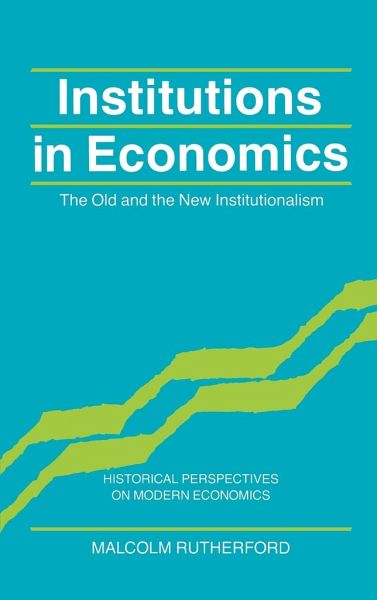
Institutions in Economics
The Old and the New Institutionalism
Herausgeber: Goodwin, Craufurd

PAYBACK Punkte
64 °P sammeln!
This book examines and compares the two major traditions of institutionalist thinking in economics: the 'old' institutionalism of Veblen, Mitchell, Commons, and Ayres, and the 'new' institutionalism developed more recently from neoclassical and Austrian sources and including the writings of Coase, Williamson, North, Schotter, and many others. The discussion is organized around a set of key methodological, theoretical, and normative problems that necessarily confront any attempt to incorporate institutions (defined to include organizations, laws, and social norms) into economics. These are iden...
This book examines and compares the two major traditions of institutionalist thinking in economics: the 'old' institutionalism of Veblen, Mitchell, Commons, and Ayres, and the 'new' institutionalism developed more recently from neoclassical and Austrian sources and including the writings of Coase, Williamson, North, Schotter, and many others. The discussion is organized around a set of key methodological, theoretical, and normative problems that necessarily confront any attempt to incorporate institutions (defined to include organizations, laws, and social norms) into economics. These are identified in terms of the issues surrounding the use of formal or non-formal analytical methods, individualist or holistic approaches, the respective roles of rational choice and rule-following behavior, the relative importance of the spontaneous evolution and deliberative design of institutions, and questions concerning the normative appraisal of institutions. The old and the new institutionalism have often been paired on opposite sides of these issues, and the issues themselves presented in a series of sharp dichotomies. Professor Rutherford argues, however, that matters are both more complex and more challenging. Although each tradition embodies fascinating insights into the study of economic institutions - their functioning, evolution, and impact on human welfare - neither has as yet provided fully satisfactory answers to the problems identified.
Table of contents:
1. Definitions and issues; 2. Formalism and anti-formalism; 3. Individualism and holism; 4. Rationality and rule following; 5. Evolution and design; 6. Efficiency and reform; 7. Conflicts and complementarities.
This book examines and compares the two major traditions of institutionalist thinking in economics: the 'old' institutionalism of Veblen, Mitchell, Commons, and Ayres, and the 'new' institutionalism developed more recently from neoclassical and Austrian sources. The discussion is organized around a set of key methodological, theoretical, and normative problems that necessarily confront any attempt to incorporate institutions into economics.
This book examines and compares the 'old' institutionalism of Veblen, Mitchell, Commons, and Ayres, with the 'new' institutionalism developed from neoclassical and Austrian sources.
Table of contents:
1. Definitions and issues; 2. Formalism and anti-formalism; 3. Individualism and holism; 4. Rationality and rule following; 5. Evolution and design; 6. Efficiency and reform; 7. Conflicts and complementarities.
This book examines and compares the two major traditions of institutionalist thinking in economics: the 'old' institutionalism of Veblen, Mitchell, Commons, and Ayres, and the 'new' institutionalism developed more recently from neoclassical and Austrian sources. The discussion is organized around a set of key methodological, theoretical, and normative problems that necessarily confront any attempt to incorporate institutions into economics.
This book examines and compares the 'old' institutionalism of Veblen, Mitchell, Commons, and Ayres, with the 'new' institutionalism developed from neoclassical and Austrian sources.



